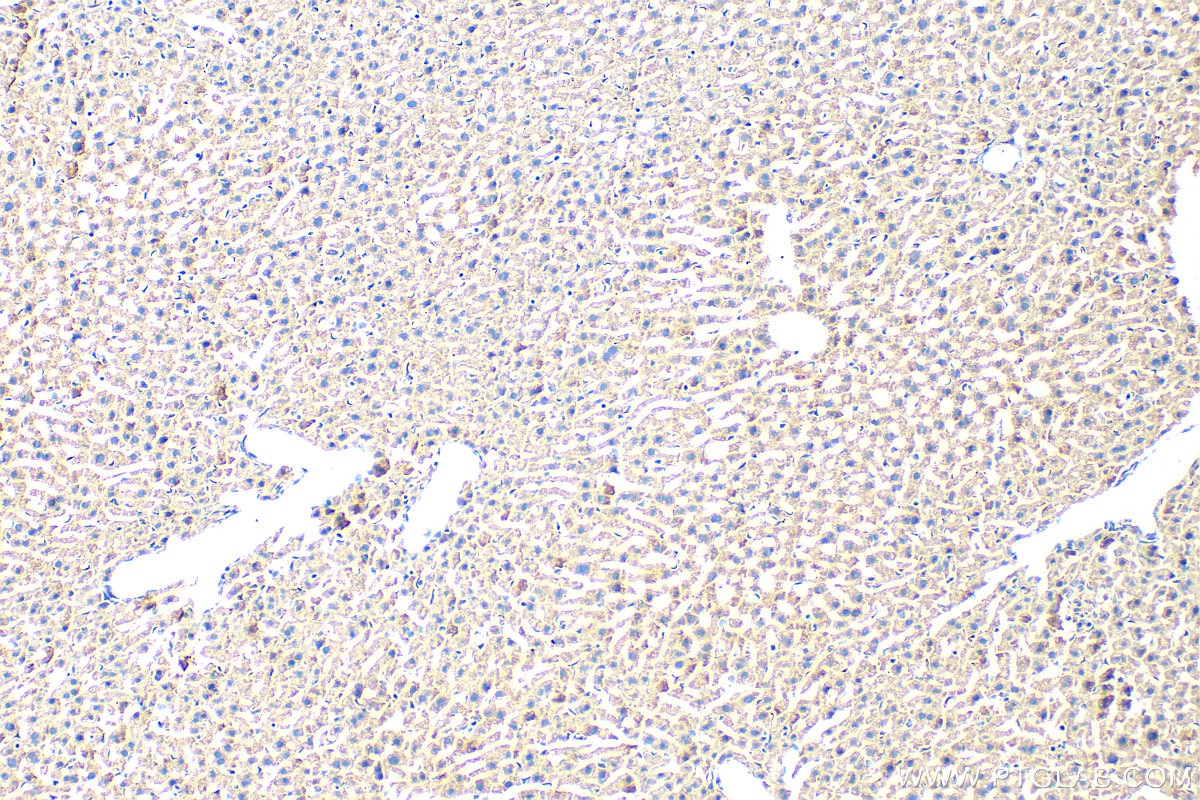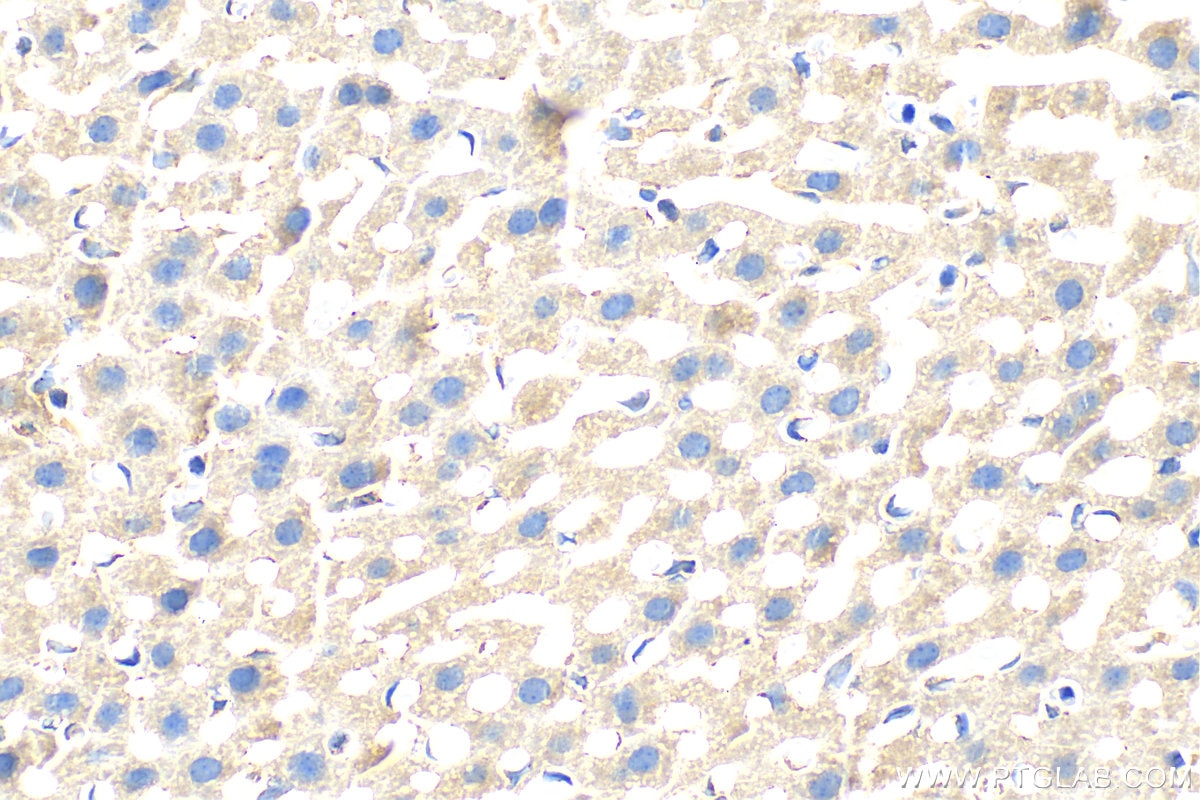SLC46A3 Polyclonal antibody
SLC46A3 Polyclonal Antibody for IHC, ELISA
Host / Isotype
Rabbit / IgG
Reactivity
Human, mouse
Applications
IHC, ELISA
Conjugate
Unconjugated
Cat no : 31031-1-AP
Synonyms
Validation Data Gallery
Tested Applications
| Positive IHC detected in | mouse liver tissue Note: suggested antigen retrieval with TE buffer pH 9.0; (*) Alternatively, antigen retrieval may be performed with citrate buffer pH 6.0 |
Recommended dilution
| Application | Dilution |
|---|---|
| Immunohistochemistry (IHC) | IHC : 1:50-1:500 |
| It is recommended that this reagent should be titrated in each testing system to obtain optimal results. | |
| Sample-dependent, Check data in validation data gallery. | |
Product Information
31031-1-AP targets SLC46A3 in IHC, ELISA applications and shows reactivity with Human, mouse samples.
| Tested Reactivity | Human, mouse |
| Host / Isotype | Rabbit / IgG |
| Class | Polyclonal |
| Type | Antibody |
| Immunogen | SLC46A3 fusion protein Ag34359 相同性解析による交差性が予測される生物種 |
| Full Name | solute carrier family 46, member 3 |
| Calculated molecular weight | 463 aa, 52 kDa |
| GenBank accession number | BC060850 |
| Gene symbol | SLC46A3 |
| Gene ID (NCBI) | 283537 |
| RRID | AB_3669822 |
| Conjugate | Unconjugated |
| Form | Liquid |
| Purification Method | Antigen affinity Purification |
| Storage Buffer | PBS with 0.02% sodium azide and 50% glycerol pH 7.3. |
| Storage Conditions | Store at -20°C. Stable for one year after shipment. Aliquoting is unnecessary for -20oC storage. |
Background Information
Solute carrier family 46 member 3 (SLC46A3) is a lysosomal membrane protein that belongs to the SLC46A family. SLC46A3 has been reported to be a proton-coupled, steroid conjugate, and bile acid transporter (PMID: 36741448). SLC46A3 plays an important role in Trastuzumab emtansine (T-DM1) treatment, a successful noncleavable antibody-drug conjugates (ADC) (PMID: 36741448).
Protocols
| Product Specific Protocols | |
|---|---|
| IHC protocol for SLC46A3 antibody 31031-1-AP | Download protocol |
| Standard Protocols | |
|---|---|
| Click here to view our Standard Protocols |



